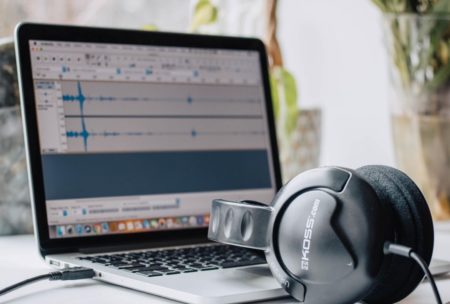This course is designed for those interested to learn about music theory for electronic musicians. Read more.
Jason Allen is a PhD in music, and was recently named one of the semi-finalists for the Grammy Foundations "Music Educator" award.
Access all courses in our library for only $9/month with All Access Pass
Get Started with All Access PassBuy Only This CourseAbout This Course
Who this course is for:
- Any level of musician
- No experience reading notes required
What you’ll learn:
- By the end of this course, you will have improved your tracks by understanding how to build chords and melodies that work together.
Requirements:
- Access to a DAW: any program will do. (GarageBand, Logic, Pro tools, Ardour, Ableton Live, etc.)
A class designed for the electronic musician that wants to take their tracks to the next level. In this class, we will focus on learning how to organize pitches and rhythms to make dynamic and interesting melodies and harmonies. No experience with music theory is necessary. Playing an instrument and reading music is also not necessary. We will be focusing on how to use your DAW as your instrument to create with.
For years I’ve been teaching Ableton Live in the college classroom. As a University Professor, my classes are sought after, and, frankly, expensive. I believe Music Theory can be learned by anyone, and cost shouldn’t be a barrier.
Topics include:
– Using the Piano Roll Editor
– Octaves
– Finding C and Middle C
– The Perfect 5th
– What it means to be “in key”
– Moveable Patterns
– Major and Minor Intervals
– Building Triads
– Chord Progressions
– 7th Chords
– … And much more!!!
Anthony Allen is an Ableton Certified Trainer and a Ph.D. in Music Composition and master of Electronic Sounds. His music has been heard internationally in film, radio, video games, and industrial sound, as well as the concert hall and theater.
He currently acts as an adjunct professor of composition at the University of St. Thomas, Macphail Academy of Music, and the CEO of Slam Academy in Minneapolis.
Praise for other classes by J. Anthony Allen:
“I’ve had Live Lite for a while but never quite understood how to use it because of the different options in how to arrange audio. This course explains exactly how to do that and get the most out of Live.”
“Great overview – I would start here for sure if you are just getting your feet wet with live. clear and to the point. session walkthroughs are great. looking forward to more”
“I have never had any formal training in music at all. Trying to learn all the notes and how everything translated was a serious challenge. After going through this class, Dr. J has totally brought down the barriers. The content was very useful and was easy to grasp for me.”
Our Promise to You
By the end of this course, you will have the knowledge about music theory for electronic musicians.
10 Day Money Back Guarantee. If you are unsatisfied for any reason, simply contact us and we’ll give you a full refund. No questions asked.
Get started today and learn more about music theory for electronic musicians.
Course Curriculum
| Section 1 - Overview | |||
| Class Overview | 00:00:00 | ||
| Section 2 - Understanding Music Theory From An Electronic Music Perspective | |||
| The Piano Roll Editor | 00:00:00 | ||
| Octaves | 00:00:00 | ||
| Using Octaves | 00:00:00 | ||
| The Black Keys (Not The Band) | 00:00:00 | ||
| Finding C And Middle C | 00:00:00 | ||
| Section Summary | 00:00:00 | ||
| Section 3 - The Perfect Fifth (5th), And Being "In Key" | |||
| The Perfect Fifth | 00:00:00 | ||
| Finding Fifths | 00:00:00 | ||
| Being “In Key” | 00:00:00 | ||
| The Pattern Of A Key | 00:00:00 | ||
| Fifth Examples | 00:00:00 | ||
| Section 4 - More With Keys, The Third, And The Basic Triad | |||
| Moveable Patterns | 00:00:00 | ||
| The Major And Minor Third | 00:00:00 | ||
| Building Triads | 00:00:00 | ||
| Chord Progressions | 00:00:00 | ||
| Section 5 - Diatonic Chord Progressions | |||
| What Is Diatonic | 00:00:00 | ||
| Finding All The Chords | 00:00:00 | ||
| Roman Numerals | 00:00:00 | ||
| Example Song Analysis No. 1 | 00:00:00 | ||
| Inversions | 00:00:00 | ||
| Section 6 - Seventh (7th) Chords | |||
| 7th Chords Overview | 00:00:00 | ||
| Diatonic 7th Chords | 00:00:00 | ||
| Maj7 (Major 7) Example | 00:00:00 | ||
| Dominant 7th Chords | 00:00:00 | ||
| Blues And The 7th Chord | 00:00:00 | ||
| Section 7 - The Other Intervals | |||
| The Fourth | 00:00:00 | ||
| The Second | 00:00:00 | ||
| The Sixth | 00:00:00 | ||
| Song Analysis No. 2 | 00:00:00 | ||
| Section 8 - Wrap Up | |||
| Wrap Up | 00:00:00 | ||
| Some Extra Video Resources | 00:00:00 | ||
About This Course
Who this course is for:
- Any level of musician
- No experience reading notes required
What you’ll learn:
- By the end of this course, you will have improved your tracks by understanding how to build chords and melodies that work together.
Requirements:
- Access to a DAW: any program will do. (GarageBand, Logic, Pro tools, Ardour, Ableton Live, etc.)
A class designed for the electronic musician that wants to take their tracks to the next level. In this class, we will focus on learning how to organize pitches and rhythms to make dynamic and interesting melodies and harmonies. No experience with music theory is necessary. Playing an instrument and reading music is also not necessary. We will be focusing on how to use your DAW as your instrument to create with.
For years I’ve been teaching Ableton Live in the college classroom. As a University Professor, my classes are sought after, and, frankly, expensive. I believe Music Theory can be learned by anyone, and cost shouldn’t be a barrier.
Topics include:
– Using the Piano Roll Editor
– Octaves
– Finding C and Middle C
– The Perfect 5th
– What it means to be “in key”
– Moveable Patterns
– Major and Minor Intervals
– Building Triads
– Chord Progressions
– 7th Chords
– … And much more!!!
Anthony Allen is an Ableton Certified Trainer and a Ph.D. in Music Composition and master of Electronic Sounds. His music has been heard internationally in film, radio, video games, and industrial sound, as well as the concert hall and theater.
He currently acts as an adjunct professor of composition at the University of St. Thomas, Macphail Academy of Music, and the CEO of Slam Academy in Minneapolis.
Praise for other classes by J. Anthony Allen:
“I’ve had Live Lite for a while but never quite understood how to use it because of the different options in how to arrange audio. This course explains exactly how to do that and get the most out of Live.”
“Great overview – I would start here for sure if you are just getting your feet wet with live. clear and to the point. session walkthroughs are great. looking forward to more”
“I have never had any formal training in music at all. Trying to learn all the notes and how everything translated was a serious challenge. After going through this class, Dr. J has totally brought down the barriers. The content was very useful and was easy to grasp for me.”
Our Promise to You
By the end of this course, you will have the knowledge about music theory for electronic musicians.
10 Day Money Back Guarantee. If you are unsatisfied for any reason, simply contact us and we’ll give you a full refund. No questions asked.
Get started today and learn more about music theory for electronic musicians.
Course Curriculum
| Section 1 - Overview | |||
| Class Overview | 00:00:00 | ||
| Section 2 - Understanding Music Theory From An Electronic Music Perspective | |||
| The Piano Roll Editor | 00:00:00 | ||
| Octaves | 00:00:00 | ||
| Using Octaves | 00:00:00 | ||
| The Black Keys (Not The Band) | 00:00:00 | ||
| Finding C And Middle C | 00:00:00 | ||
| Section Summary | 00:00:00 | ||
| Section 3 - The Perfect Fifth (5th), And Being "In Key" | |||
| The Perfect Fifth | 00:00:00 | ||
| Finding Fifths | 00:00:00 | ||
| Being “In Key” | 00:00:00 | ||
| The Pattern Of A Key | 00:00:00 | ||
| Fifth Examples | 00:00:00 | ||
| Section 4 - More With Keys, The Third, And The Basic Triad | |||
| Moveable Patterns | 00:00:00 | ||
| The Major And Minor Third | 00:00:00 | ||
| Building Triads | 00:00:00 | ||
| Chord Progressions | 00:00:00 | ||
| Section 5 - Diatonic Chord Progressions | |||
| What Is Diatonic | 00:00:00 | ||
| Finding All The Chords | 00:00:00 | ||
| Roman Numerals | 00:00:00 | ||
| Example Song Analysis No. 1 | 00:00:00 | ||
| Inversions | 00:00:00 | ||
| Section 6 - Seventh (7th) Chords | |||
| 7th Chords Overview | 00:00:00 | ||
| Diatonic 7th Chords | 00:00:00 | ||
| Maj7 (Major 7) Example | 00:00:00 | ||
| Dominant 7th Chords | 00:00:00 | ||
| Blues And The 7th Chord | 00:00:00 | ||
| Section 7 - The Other Intervals | |||
| The Fourth | 00:00:00 | ||
| The Second | 00:00:00 | ||
| The Sixth | 00:00:00 | ||
| Song Analysis No. 2 | 00:00:00 | ||
| Section 8 - Wrap Up | |||
| Wrap Up | 00:00:00 | ||
| Some Extra Video Resources | 00:00:00 | ||





A god stsrting course for electronic musicians.
This is a solid course. The instructor has a clear, easy-to-follow delivery style. I liked the song analysis in the closing sections. I am looking forward to the second course in this series.
Awesome course!